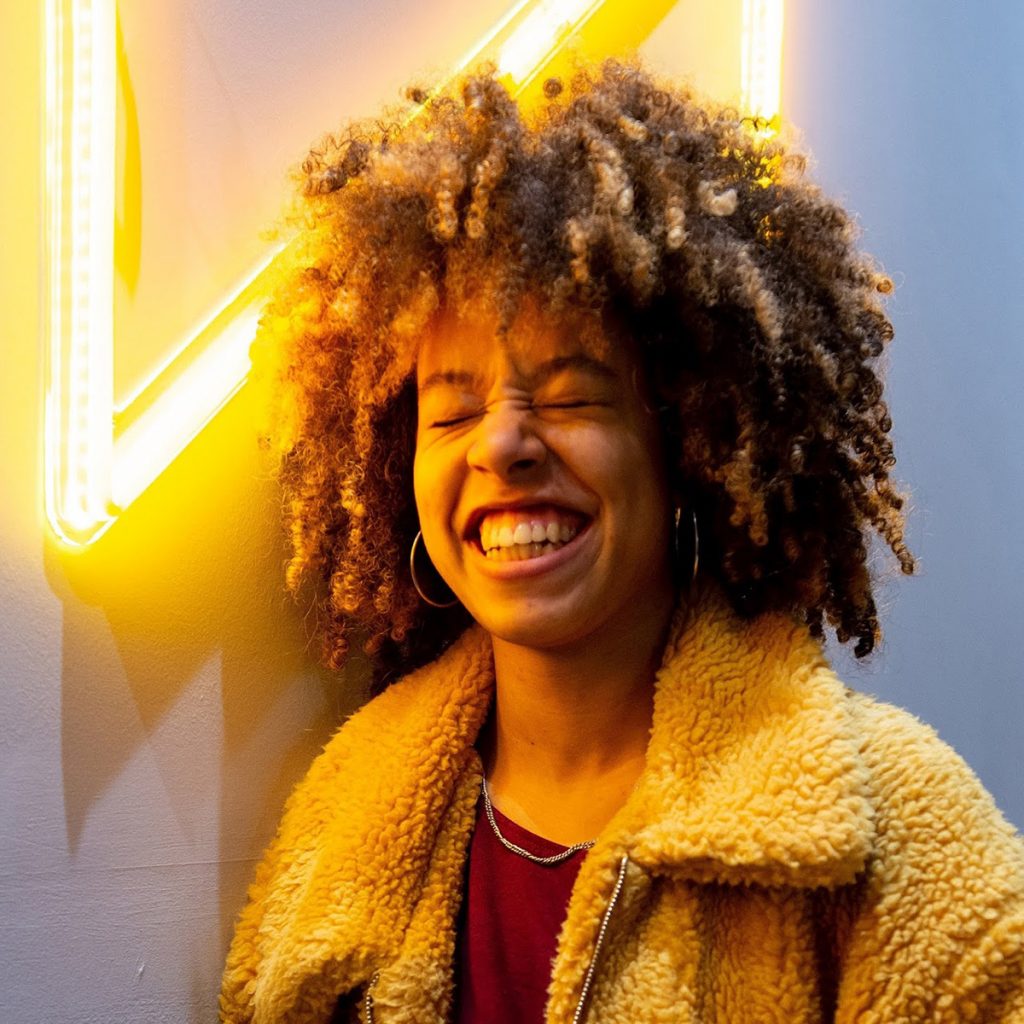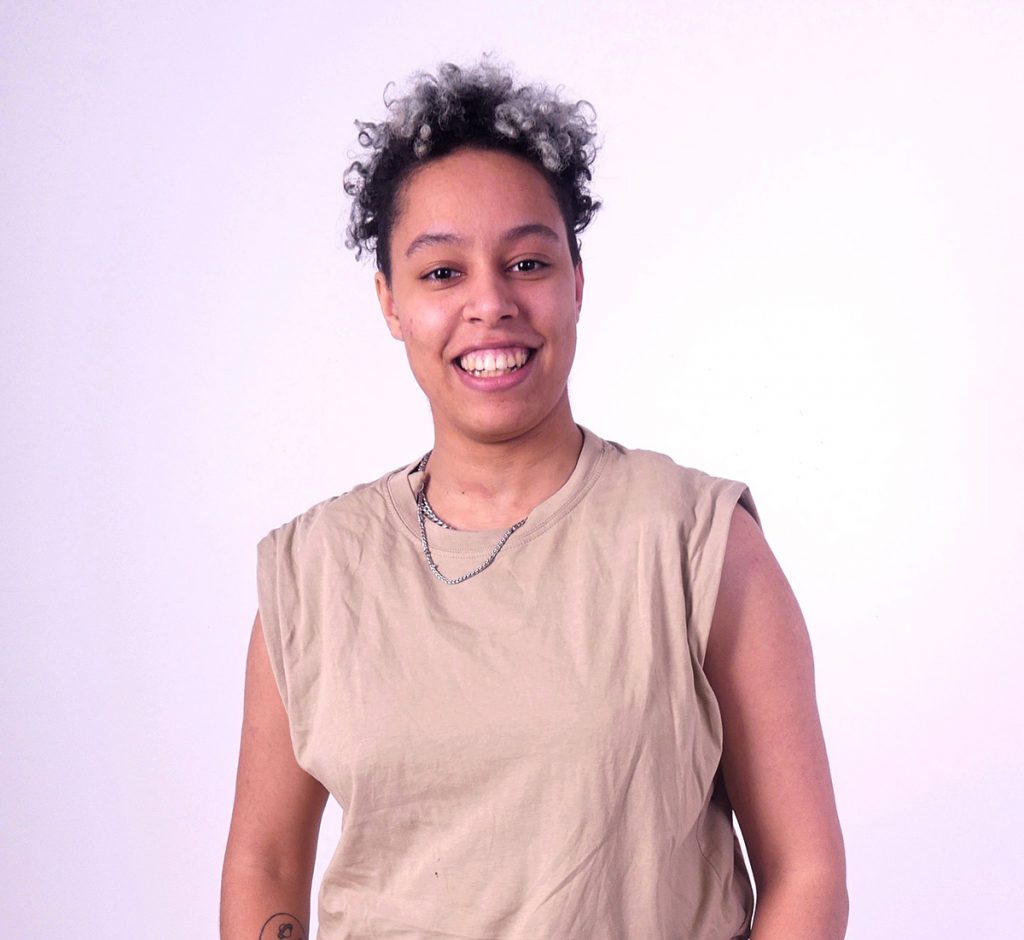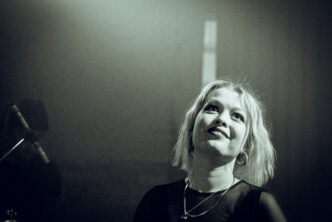Composer and musician, Lavender Rodriguez talks about Manchester Camerata’s Hidden Histories project, working with schools across the northwest to celebrate the works of under-represented composers.
During the project, teenagers are working with Lavender to explore music by composers who have been previously overlooked due to their skin colour, ethnicity or gender, such as Ruth Gipps 1921-1999, Undine Smith Moore 1904-1989, Scott Joplin 1868-1917 and Julius Eastman 1940-1990. As well as learning about lesser known composers the youngsters get to try out their own composition skills, creating a brand-new piece of music to be played by members of Manchester Camerata in a celebratory concert.

How are you enjoying your work on the Hidden Histories project?
Lavender: “It’s great fun and I love working with kids. It’s so beautiful seeing the progression from people not thinking that they can achieve in music to creating a piece of music in two weeks. And that goes for any age group as well. If you’re sat there thinking I just can’t compose – you can. You just need like the facilities and the space to do that”.
How important is it to give visibility to the many under-represented artists within classical music?
Lavender: “I always find it really weird sitting in a world that is mainly represented by a Eurocentric view and white privileged males. Especially nowadays, with globalisation and everything kind of melding together culturally, I think it is really important to give voices to those that haven’t had that stage and presence before. With a project like this, it’s been really interesting giving voice to those who were kind of swept under the carpet because of the fact that they are black or female identifying or non-binary, or whatever. But because of what happened before, it’s really hard to bring their work to life. Whereas now a lot of this information is accessible, especially if a composer is living or a person is living. It is better to seize those moments now and allow them that time and place rather than ignore them again so their music just gets forgotten and lost and we can’t really retrieve it and perform it and so forth. So, while I do think is important to highlight those before, it’s also really important to highlight those composing now, so that history doesn’t repeat itself”.
How will projects like Hidden histories help make classical music, feel more inclusive to a younger, more diverse audience?
Lavender: “I think projects like Hidden Histories really help – one with visibility and two with trying out ideas. I really wanted to ensure that kids see that anything is valuable and anything is valid. And whatever background you come from, you can achieve whatever your brain thinks of. A lot of things, especially in the education system, are very restricted and you’re kind of pushed down a path of these are the subjects you must study in order to earn X amount of money. Whereas with composition, the idea is that, as long as you have one note or, a single idea, then that’s a valid idea and it can become a flourishing, beautiful piece. So, yeah, I think a project like this is like valuable in terms of just your existence as a person in your brain and knowing that like you matter and your ideas matter and everything you think is good”.
How did you feel as a young musician and person of colour when you started to enter the music industry?
Lavender: “I didn’t think composition was a viable career, to be honest, as a kid, I was super surprised that it was even a thing. I thought, again, the way it is presented in class and education was the fact that it was dead white males and so, I really couldn’t see myself in that field. And when I started this, again, there’s a lot of doubt as I was kind of proceeding and I thought it was just a hobby for a good long time”.

Which artists have inspired you in your work?
Lavender: “I think when I started music, it was a lot of people like Stravinsky and John Adams, and Benjamin Britten. As I’ve gone on, I’ve kind of strayed outside the classical world – again because it’s Eurocentric and it’s white male privileged. And as much as I respected their technique and their craft, I didn’t feel like that represented my own ideas and my own craft. Nowadays, I just look up to my peers, especially people like Cassie Kinoshi, and Hannah Kendall and Daniel Kidane, and people who are doing it in the now – that’s what I really respect. I learned so much from how they approach their own pieces and I can take that and use that for my own works. Outside of that I just enjoy a lot of popular music – people like Alabama Shakes, Lianne La Havas and Doja Cat. I think they write great music and are a great example of people reaching out to their audiences, really knowing who they’re writing for and celebrating their own craft. So, for me, it all melds into one.
As well as a composer you also work as a violin and piano teacher. What would you say is your teaching philosophy?
Lavender: “I think a musician should always find the music that inspires them because that’s the best way that you’re going to immerse yourself in it. If you’re been dictated what you have to learn, you just won’t enjoy it. I hated doing grades, it was like the worst thing ever and so, I’d prefer that a student, first and foremost comes knowing and wanting to learn that instrument or knowing and wanting to be a composer, and then bringing the music. And it could be anything, it doesn’t have to be classical. Again, with the with the history that classical music has, it’s not very approachable; it’s not very inclusive. So why should I force a student to learn something that doesn’t represent them? You should be going off what represents you and your beliefs and your interests and so, I come in with that philosophy of, if this is the end goal and this is what you want to achieve, and this is the music that inspires you, then let’s work towards that. And there’s always a way you can develop. Again, with classical music, there’s a belief that what has come before is the most technically challenging, but really it is what is now and fitting in with this kind of globalised mindset. And so there’s always a way that you can technically develop your craft through rhythm and pitch and whatnot within say, hip hop or neo-soul or popular music, if you’re learning a ‘classical’ instrument”.
Read about Manchester Camerata’s Music in Mind, a music therapy project for people with dementia.





